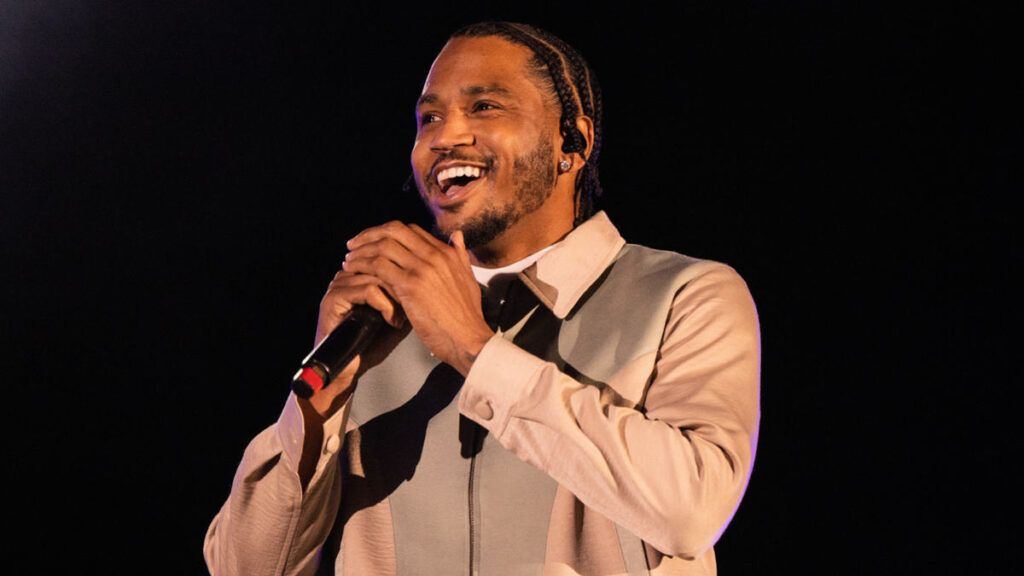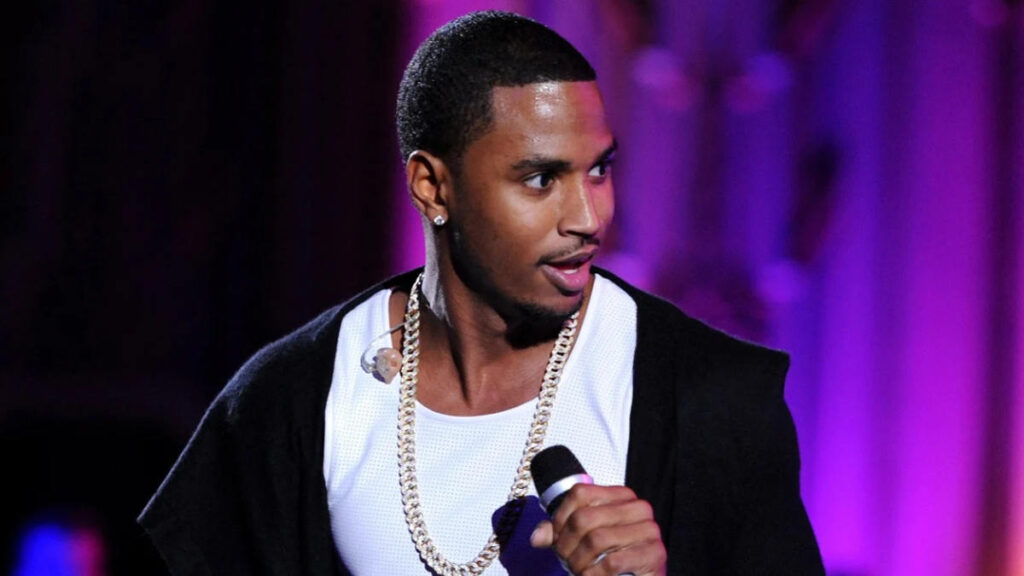The crowd roared as Trey Songz stepped onto the Vegas stage in late 2024, his set tucked between headliners half his age. The lights hit just right, the vocals still sharp, and the energy? Unmistakably magnetic. But behind the spotlight was a question that even fans had started whispering: How is he still doing this?
Not just performing—but earning, investing, expanding.
In an industry where careers peak and plummet in the same decade, Trey has defied the arc. He’s weathered scandals, label shakeups, digital disruption, and yet here he stands—part R&B icon, part low-key mogul. His net worth in 2025 isn’t just a number; it’s a story of reinvention, quiet strategy, and the blurred lines between fame and fortune in the streaming age.
This isn’t your typical “where are they now” profile. It’s a deeper dive into how Trey Songz built, lost, retooled, and continues to scale a fortune through music, brand plays, and a knack for staying relevant when others fade.
What does it take to thrive in entertainment’s second act? Let’s find out.
From Petersburg to Platinum: The Origins of a Star’s Financial Journey
Before the platinum plaques, designer shades, and million-dollar streaming checks, Trey Songz was just Tremaine Aldon Neverson, a soft-spoken teenager growing up in Petersburg, Virginia—a city more known for economic hardship than hitmakers. Raised by his mother, April Tucker, a military veteran who gave birth to him at just 17, Trey’s early life was marked by resilience, structure, and the ever-present weight of financial limitation.
That awareness of scarcity didn’t just spark ambition—it ignited discipline. Unlike many peers chasing the spotlight, Trey wasn’t just dreaming of fame; he was paying attention to the business beneath the shine. He studied the moves of artists like Usher and R. Kelly, not just for vocal runs, but for how they navigated careers across decades.
In 2003, at 18, he signed with Atlantic Records after being mentored by producer Troy Taylor—a connection that would prove critical. But what set Trey apart wasn’t just his voice or baby-faced charm. It was timing. He broke into the scene as R&B was splintering—hip-hop was dominating, pop was shifting digital, and the traditional album model was fading. Trey leaned into this chaos, blending genres and capturing both mainstream and urban audiences with a strategic finesse well beyond his years.
By the time his debut album, I Gotta Make It, dropped in 2005, the title wasn’t just marketing—it was a thesis. His rise wasn’t meteoric, but methodical. Every mixtape, every feature, every stylistic reinvention felt like a calculated step toward something bigger than the charts: financial freedom, long-term relevance, and creative control.
The boy from Petersburg wasn’t just chasing a hit. He was building a blueprint.

Hit Records, Heavy Royalties: How Music Still Pays the Bills
Trey Songz doesn’t just have hits—he has residual income. Tracks like “Say Aah,” “Bottoms Up,” and “Can’t Help But Wait” weren’t just club anthems; they became licensing goldmines, wedding playlist staples, and R&B time capsules that continue to generate royalties years after peaking. In the streaming era, legacy hits matter more than ever—and Trey’s catalog is aging unusually well.
Take Ready (2009), his breakout album that delivered back-to-back radio smashes and positioned him as the heir to Usher’s throne. The project still garners millions of monthly streams, and songs like “Neighbors Know My Name” and “I Invented Sex” are mainstays on curated R&B playlists across Spotify and Apple Music. That means predictable, long-tail revenue, not just from streaming, but from sync licensing in TV, film, and even TikTok revivals.
And unlike one-album wonders, Trey diversified early. His Trigga (2014) album leaned into pop-rap fusion, expanding his audience and boosting international streaming numbers. Each phase of his discography pulled in a different demographic, creating multiple income layers that perform across platforms.
Behind the scenes, royalty structures matter. As both a performer and partial songwriter on much of his material, Trey earns not just performance royalties (for when the song is played publicly or streamed) but mechanical royalties (for reproductions or digital downloads), and sync royalties when songs appear in media. These royalty types stack, and Trey’s steady release schedule kept them flowing for over a decade.
He may not dominate the charts in 2025, but his streaming numbers, licensing footprint, and royalty splits still pay the bills—and then some. In a genre where careers often flash and fade, Trey Songz has achieved something rare: a back catalog with staying power and a royalty stream that hums even when the spotlight dims.
A Closer Look at Streaming Economics in the R&B World
In the early 2000s, a platinum plaque meant one thing: a million physical albums sold, with artists banking on upfront sales and hefty label advances. But in 2025, the math has changed—and for R&B artists like Trey Songz, the shift has been both challenge and opportunity.
Streaming platforms like Spotify, Apple Music, and YouTube now dominate music consumption. Each stream pays a fraction of a cent (often around $0.003–$0.005), but for artists with deep catalogs and consistent engagement, those fractions add up—especially when multiplied across millions of monthly plays. For someone like Trey, whose songs span club bangers, bedroom ballads, and crossover radio hits, streaming serves as a slow-drip income machine.
R&B, more than many genres, thrives on mood-based listening. Trey’s catalog sits comfortably in “Late Night,” “R&B Classics,” and “Throwback” playlists—prime real estate that keeps his older tracks rotating without any new promotion. In that sense, legacy hits are like rental properties: once built, they generate passive revenue.
The streaming era hasn’t been kind to every artist. But for Trey Songz, whose discography hits emotional and nostalgic sweet spots, the platforms have extended his financial prime—even as his radio dominance fades.
Beyond the Booth: Trey Songz as a Brand and Entrepreneur
Trey Songz didn’t just stop at hit records—he quietly built a personal brand with entrepreneurial muscle behind it. While he never launched a mega-brand à la Rihanna’s Fenty or Diddy’s Cîroc empire, Trey made smart, calculated moves that diversified his income and aligned with his audience.
In the mid-2010s, he partnered with SX Liquors, an ultra-premium spirits brand, becoming both a spokesperson and equity stakeholder. The deal reflected a growing trend in celebrity branding—owning a piece of the pie, not just endorsing it. Trey also explored fashion collaborations, including a limited run with Rocawear and rumored talks with streetwear startups around 2017–2018.
His social media clout, especially among millennial women, positioned him as a low-key influencer before the term was mainstream. Sponsored Instagram posts, lifestyle partnerships, and tour-based merchandising added to the mix. While he never went fully mainstream with a signature product line, his endorsement deals were tightly curated—stylish, sensual, and loyal to his R&B persona.
Still, his entrepreneurial visibility remained limited by occasional public controversies, which may have spooked bigger brands. But in a digital economy where niche appeal can drive major returns, Trey carved out a lane—less mogul, more minimalist entrepreneur—with enough ownership to matter.
Real Estate Moves — Where He’s Putting His Money Now
While Trey Songz has never flaunted a sprawling real estate empire, his property choices over the years suggest a quiet strategy rooted in comfort, privacy, and long-term value. One of his most publicized homes—a custom-built estate in Bell Canyon, California—was purchased for just over $3 million in 2016. The gated community, known for celebrity residents and panoramic views, speaks to a lifestyle driven by discretion rather than flash.
Though he later sold the home in 2021, that move may have signaled a shift from luxury living to real estate liquidity—a savvy play for artists whose income streams can fluctuate. It also reflects a growing trend among entertainers: treating real estate not just as a residence, but as a portfolio.
For stars like Trey, real estate offers both passive wealth-building and a hedge against the volatility of the music industry. Whether he’s holding rental properties, investing in joint ventures, or simply buying and flipping in strategic zip codes, the logic is clear—bricks and land don’t go out of style.
Even without a property brand or publicized flips, his quiet presence in the market suggests a calculated mindset: lifestyle-driven, equity-conscious, and rooted in long-term planning more than public display.

The Power of Staying Relevant: Touring, Television, and TikTok in 2025
In an era when attention spans last about as long as a TikTok scroll, Trey Songz’s continued visibility in 2025 isn’t accidental—it’s tactical. Though his peak radio dominance may have passed, he’s embraced the second act of fame with calculated moves that keep his name (and revenue) alive.
Touring remains one of Trey’s most consistent income streams. His spot-on nostalgia-driven R&B lineups—alongside artists like Mario, Ashanti, and Omarion—have proven lucrative. These multi-city tours tap into millennial nostalgia while drawing new listeners who discovered him through curated playlists and viral content.
But Trey hasn’t just leaned on live shows. He’s dabbled in TV appearances, including cameos in BET dramas and brief hosting roles, subtly keeping his face familiar without overexposure. In 2023, rumors swirled about a reality-based docuseries—part legacy-building, part image rehab—that aimed to reintroduce him to a new generation.
Then there’s social media. With over 15 million combined followers across Instagram, Twitter, and TikTok, Trey remains a digital force. He uses these platforms not just for promotion but personality—dropping intimate acoustic clips, tour behind-the-scenes footage, and the occasional thirst trap, all of which generate brand interest and sponsorships behind the scenes.
Staying relevant in 2025 isn’t about chasing trends—it’s about owning your narrative. Trey Songz may no longer dominate the Billboard charts, but he’s built a digital presence and performance strategy that keeps the checks coming and the spotlight within arm’s reach.
How Trey Songz Stacks Up Against His Peers
In 2025, Trey Songz’s estimated net worth sits around $6 million—a respectable figure, but modest compared to some of his closest peers. Chris Brown, for example, has reportedly surpassed $50 million, fueled by relentless touring, a vast music catalog, and lucrative art and fashion ventures. Usher, a generation ahead, commands north of $180 million, thanks to Vegas residencies, brand equity, and early equity stakes in tech and streaming platforms.
Even Ne-Yo—often seen as a kindred spirit in the R&B lane—has edged ahead, bolstered by songwriting credits for major artists, reality TV income, and a more public-facing entrepreneurial profile.
So, where does Trey land? Somewhere between quiet consistency and missed momentum.
Part of the gap comes down to diversification. While Trey has maintained a loyal fanbase and steady music revenue, he hasn’t capitalized on large-scale endorsements, long-running brand deals, or public entrepreneurial plays. Controversies and legal entanglements have also impacted his marketability, limiting his appeal to mainstream advertisers.
But Trey’s financial strategy appears grounded in sustainability, not flash. His catalog generates streaming income, his touring appeal remains strong, and his investments—though understated—offer long-term value. He may not be among the ultra-wealthy elite of R&B, but he’s avoided the dramatic financial falls others have faced.
In a genre where talent doesn’t always translate to financial endurance, Trey Songz has carved out a quieter lane, but still firmly intact.
The Other Side of the Coin: Legal Battles, Setbacks, and PR Scars
Trey Songz’s path to financial stability hasn’t been without turbulence—and in the world of celebrity wealth, reputation is currency. Over the past decade, he’s faced a string of legal disputes and public controversies that, while not derailing his career entirely, have cast long shadows over brand partnerships and mainstream appeal.
Most notably, several allegations of assault and misconduct between 2017 and 2022 made headlines, triggering lawsuits and civil settlements. While many claims were denied or dismissed, the recurring nature of the stories impacted his public image and likely limited opportunities in endorsement-heavy industries like fashion, tech, and television. For companies evaluating potential ambassadors, even unresolved allegations can be disqualifying.
These challenges didn’t just affect his reputation—they potentially affected his bottom line. Negative press often results in reduced playlisting on major streaming platforms, lost booking opportunities, and hesitation from sponsors. Artists operating under controversy can also see dips in engagement from casual listeners, especially in the social media age where perception spreads fast.
That said, Trey has maintained a loyal core fanbase, and his ability to generate music revenue remains largely intact. But the long-term cost of public scrutiny is real—not only in dollars lost, but in future opportunities foregone. It’s a reminder that in the entertainment economy, financial success is often as much about trust as it is talent.

“If You’re Not Learning, You’re Losing” — Take on Trey’s Hustle
I remember hearing Trey Songz for the first time on a scratchy bootleg mixtape in a friend’s car. He wasn’t polished yet—his voice still carried that raw Virginia soul, hungry and unfiltered. Back then, he felt like R&B’s next big thing. But what’s stuck with me over the years isn’t just the music—it’s the hustle behind the harmony.
Trey’s never been the loudest mogul in the room, but if you’ve followed his career closely, you can see the shift. Somewhere between Ready and Trigga, he went from young hitmaker to calculated businessman. Not in a flashy, “let me launch a vodka brand tomorrow” kind of way, but with the quiet precision of someone who understood the stakes. The touring got tighter. The features are more strategic. The brand is more curated.
He once said in an interview, “If you’re not learning, you’re losing.” That stuck with me. Because in an industry built to chew artists up after their moment passes, Trey evolved. Not just musically, but financially, operationally, and even emotionally. He didn’t just ride the wave; he studied the current, figured out how to stay afloat when it changed.
No, he’s not the richest name in R&B. But he’s still here. Still earning. Still relevant. And in a world that forgets its stars as fast as it finds them, that’s its kind of legacy.
Final Net Worth Breakdown: Where the Millions Come From in 2025
As of 2025, Trey Songz’s estimated net worth sits at $6 million, according to Celebrity Net Worth and its makeup tells a story of steady, if unspectacular, diversification. While not inflated by billion-dollar startups or Vegas residencies, his fortune is built on consistency and smart allocation.
Here’s a breakdown of his key income streams:
Music Catalog & Royalties ($2.5M): Streaming revenue from legacy hits, songwriting royalties, and licensing deals continues to provide reliable, mostly passive income. His catalog remains his financial backbone.
Touring & Performances ($1.2M): Live shows, R&B nostalgia tours, and private bookings are an active but dependable source, particularly in the U.S. and select international markets.
Endorsements & Brand Deals ($700K): Smaller-scale sponsorships, product partnerships, and influencer marketing contribute modestly, largely through Instagram and touring tie-ins.
Real Estate Investments ($1M): Select holdings and past flips—including his former Bell Canyon property—represent both equity and capital gain potential.
Trey’s portfolio leans 60% passive, 40% active—a ratio that suggests financial stability but also room for growth. Without major tech investments or headline-grabbing business ventures, he’s not chasing mogul status. But with a solid foundation and a loyal fan base, Trey Songz remains both relevant and financially grounded.
Trey Songz’s Financial Legacy in the Making
Trey Songz’s financial journey isn’t the story of a meteoric rise to billionaire status, but that’s what makes it worth studying. His net worth, though modest by superstar standards, reflects something more enduring: resilience. He didn’t just survive the waves of digital disruption, scandal, or changing trends—he adjusted his sail each time.
In an industry obsessed with rapid ascent, Trey’s career reminds us that longevity is its kind of currency. He’s built a life—financially and artistically—that isn’t dependent on the next chart-topping single or viral moment. Instead, he’s stitched together a portfolio of income streams rooted in work ethic, audience loyalty, and quiet evolution.
Is he cementing a legacy? Maybe. Or maybe he’s still mid-chapter in a longer arc. But what’s clear is that Trey Songz belongs to a new breed of artist—ones who understand that talent might open the door, but sustainability depends on strategy, adaptability, and timing.
Fame fades. Trends shift. But for those who play the long game, like Trey has, fortune becomes more than a number—it becomes a reflection of intention.
Nishant is a digital strategist and celebrity finance analyst with over 15 years of experience in SEO-driven content. As Founder of TheNetWorths.com, he creates high-authority profiles on wealth, branding, and cultural influence.




















2 thoughts on “Trey Songz Net Worth 2025: How the R&B Star Earned a $6 Million Fortune”